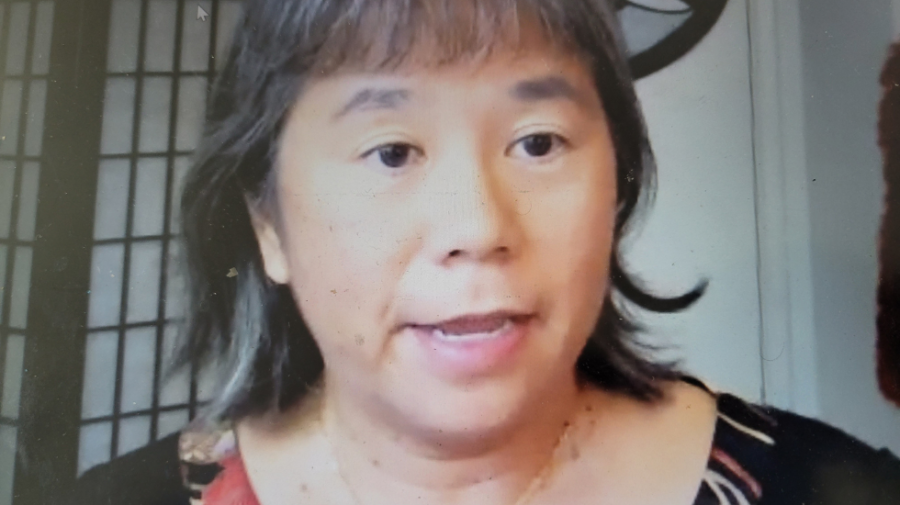City College webinar highlights Japanese history, culture
San Diego City College partners with others to give an overview of Japanese-American history and culture
Susan Hasegawa, Professor of history at San Diego City College, spoke to students in a webinar about Japanese and Asian history and culture. Zoom screenshot
September 27, 2022
The Japanese-American Historical Society of San Diego partnered with San Diego City College and Palomar College to give a series of webinars giving interested viewers an overview of Japanese and Asian history and culture.
Kay Ochi, the president of the JAHSSD, hosted the webinar on Sept. 23, opening with how vital the role those with Japanese ancestry have been here in San Diego since the 1800s.
Ochi told viewers how her parents were incarcerated during World War II, like many Japanese-Americans in camps for no other reason than their ancestry.
“In all the decades of Japanese in America, I believe the most difficult years for our community very well could have been those war years,” Ochi said.
Matthew Estes, a professor of history at Palomar College, began by touching on the Asian-American experience with the U.S. Constitution and the law.
Estes explained how Congress alone has the authority to set naturalization requirements, not the states though there have been examples throughout history of states trying to usurp that power.
Susan Hasegawa, a professor of history at San Diego City College, started speaking in more detail, about the internment camps in which many immigrants and U.S citizens of Japanese ancestry were incarcerated. Hasegawa described dehumanizing conditions at these camps in which many family members were separated and didn’t see each for years.
This webinar was the third in a series titled “Remembrance, Redress & Reparation: Learning from the Past.” To watch previous webinars, click here.
https://youtu.be/aS8PxRMRPzQ
This webinar came days after The San Diego Union-Tribune published a story after the San Diego City Council issued an apology to the Japanese-American community for the impact of the camps during WWII.











